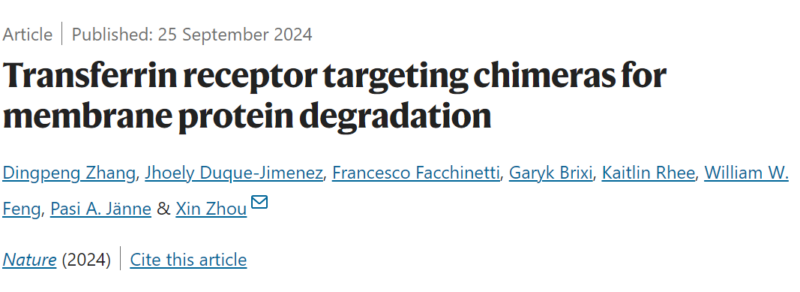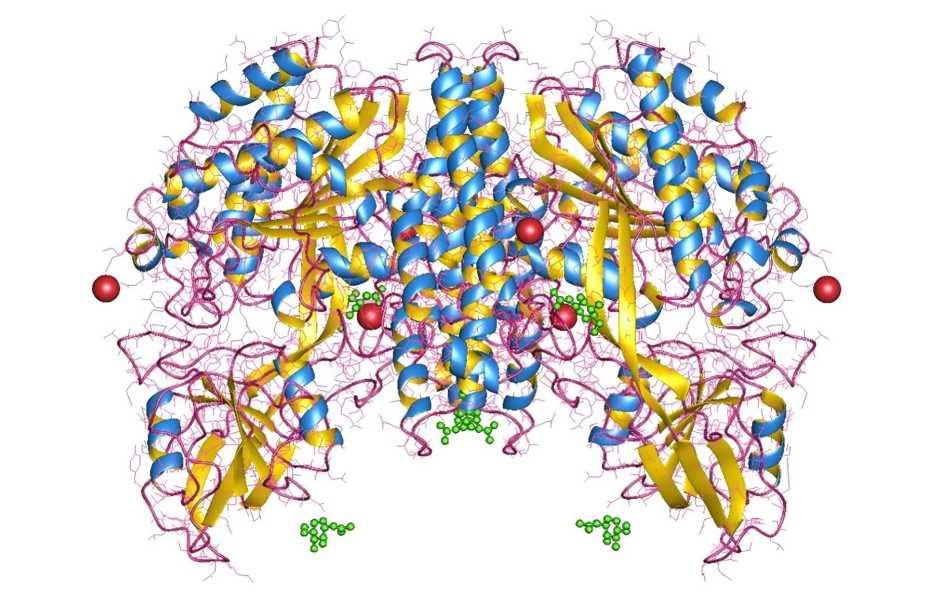The Babak Lab shared on LinkedIn:
“Scientific Wednesday. A New Approach in Targeted Cancer Therapy: Transferrin Receptor Targeting Chimeras (TransTACs).
Researchers have developed a cutting-edge approach to tackle drug-resistant cancers and fine-tune immunotherapies by leveraging Transferrin Receptor 1 (TfR1), which is overexpressed in cancer cells. Here’s how TransTACs are set to transform the landscape of cancer treatment:
How it Works: TransTACs are engineered antibodies that co-internalize a protein of interest (POI) with TfR1, using the receptor’s rapid endocytosis to direct the POI to lysosomes for degradation. TfR1’s overexpression in cancers allows this mechanism to efficiently target and degrade essential membrane proteins in tumor cells.
Key Highlights:
– Targeting Drug-Resistant Cancers
TransTACs successfully degrade mutant EGFR proteins, overcoming resistance to treatments like osimertinib in lung cancer.
– Immunotherapy Control
By degrading CAR proteins, TransTACs can reversibly regulate CAR-T cells, offering a novel method to reduce harmful side effects, such as cytokine release syndrome.
– High Degradation Efficiency
Achieves 80%+ degradation of membrane proteins, outperforming many existing methods.
– Broad Applicability
TransTACs can target diverse membrane proteins, including PD-L1, CD20, and EGFR, making them a versatile tool for cancer therapy and beyond.
Why It Matters:
TransTACs offer a revolutionary approach to treat drug-resistant cancers, while providing a new way to regulate immunotherapy, all with the precision of targeting specific membrane proteins. With favorable pharmacokinetics and low toxicity to healthy cells, TransTACs hold promise for clinical translation.
Discover how TransTACs are shaping the future of cancer treatment and protein degradation research.”
Mariak Babak shared a post by The Babak Lab, adding:
“This research highlights a major leap in cancer therapy with TransTACs, a game-changing technology that targets hard-to-treat cancers, including drug-resistant ones, by degrading critical membrane proteins. If you’re in biotech, oncology, or immunotherapy, you definitely want to check this out! It’s not just about targeting cancers more precisely—TransTACs also offer a novel way to control CAR-T cells without genetic modification.
Let’s discuss in the comments! How do you see TransTACs transforming the future of oncology?”
Transferrin receptor targeting chimeras for membrane protein degradation
Authors: Dingpeng Zhang, Jhoely Duque-Jimenez, Francesco Facchinetti, Garyk Brixi, Kaitlin Rhee, William W. Feng, Pasi A. Jänne, Xin Zhou

Source: The Babak Lab/LinkedIn and Maria Babak/LinkedIn
Dr. Maria (Masha) Babak is the Head of The Babak Lab and an Assistant Professor at the City University of Hong Kong. In November 2020, she joined the City University of Hong Kong as an assistant professor. Dr. Babak received the Graeme Hanson-AsBIC Early Career Award in 2022. Her research interests are at the intersection of chemistry, biology, and medicine, with a focus on the discovery and preclinical development of anticancer drugs for resistant and aggressive cancers with limited treatment options, such as malignant pleural mesothelioma and brain metastases.
